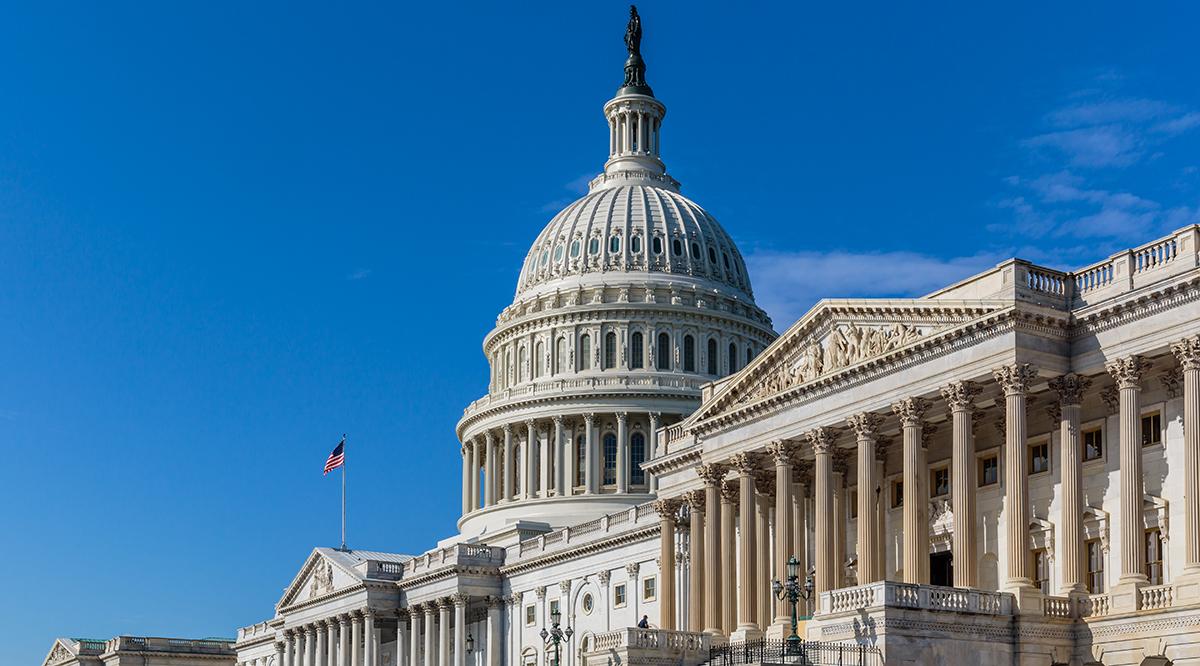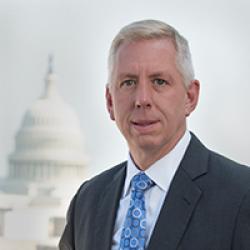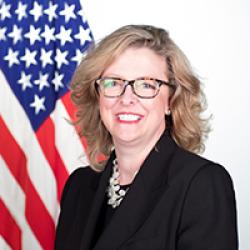When Ann Sheehy, MD, was named a Robert Wood Johnson Foundation (RWJF) Health Policy Fellow by the National Academy of Medicine in the summer of 2021, she envisioned spending her days learning how health policy advances through the regulatory and legislative arenas. That was certainly part of the job, but Sheehy also worked on several pieces of legislation, including the Inflation Reduction Act that was signed into law on August 12, which extended Affordable Care Act subsidies and allowed Medicare to negotiate drug prices on a handful of brand-name drugs, among other health care provisions.
“Those policies that I worked on, directly or indirectly, became actual federal law that will impact our patients for the future, which is very satisfying,” says Sheehy, a hospitalist at the University of Wisconsin School of Medicine and Public Health in Madison, who was assigned to work with U.S. House of Representatives Speaker Nancy Pelosi. “The other thing I learned was just the enormous work ethic, the professionalism, the intelligence, the brilliance of the staff that work behind the scenes. That was just really eye-opening.”
This month, Sheehy will return to the University of Wisconsin and another group of midcareer fellows will move to Washington, D.C., to lend their front-line expertise to the legislative process.
When you watch the news, it is easy to think we are now the Dis-United States of America. Many would have us believe that the divisions in America — Democrat vs. Republican, urban vs. rural, us vs. them — are insurmountable. But the experiences of midcareer policy fellows like Sheehy suggest otherwise. In particular, the RWJF Health Policy Fellowships and the White House Fellowships have long histories (49 and 58 years, respectively) of bringing some of America’s best and brightest to Washington, D.C., to participate in the policy process at the highest levels of the federal government — on both sides of the political divide.
Midcareer fellowships are one of the few ways that experts with extensive and contemporary front-line experience can add context to federal policymaking.
There are many types of fellowships in the nation’s capital, but midcareer programs are unique. They provide an opportunity for talented and experienced subject matter experts to become substantively engaged in the messy and imperfect policy process. Midcareer fellows certainly add their intellectual capacity to the considerable brain power in Washington. However, they bring something more important than smarts — they bring perspective. Midcareer fellowships are one of the few ways that experts with extensive and contemporary front-line experience can add context to federal policymaking.
For example, the six health professionals (three physicians, two nurses, and a social worker) from the 2021-22 RWJF Health Policy Fellows Program hail from Arizona, Georgia, Illinois, Kentucky, Michigan, and Wisconsin. While Sheehy worked in the office of the Speaker of the U.S. House of Representatives, three other fellows worked in the personal offices of U.S. senators, and two worked at the House Energy and Commerce Committee, one for the minority, the other for the majority. During debate over the nation’s greatest public health crisis in nearly a century, the COVID-19 pandemic, RWJF Health Policy fellows were almost always the only clinicians in the room. Just imagine how many times they were able to say, “Well, that sounds good in theory, but let me tell you how that will work in the real world.”
The RWJF Health Policy Fellows Program is just one of scores of opportunities that bring subject matter expertise and real-world experience to Washington. Other programs include the American Political Science Association Congressional Fellows Program, the American Association for the Advancement of Science (AAAS) Science and Technology Policy Fellowships, the Health and Aging Policy Fellows, and the venerable White House Fellowship, to name a few. Perhaps President Lyndon B. Johnson said it best in his 1964 address to the first class of White House Fellows: “This country needs … your boundless energy. We need your curiosity, your inquisitive minds. … We need your belief that the impossible is only a little more difficult to do.”
Many applicants to the RWJF Health Policy Fellows Program come from academic faculty positions. In fact, the ability to participate in these types of opportunities is one of the reasons that some choose to go into academia rather than private practice. Unfortunately, the pressures facing academic institutions and departments over the last decade, and most acutely in the past two years, have made it increasingly difficult to lose clinical faculty for a year. The paradox is that at just the time that policymakers desperately need subject matter expertise, support from some academic institutions is waning.
The paradox is that at just the time that policymakers desperately need subject matter expertise, support from some academic institutions is waning.
There are real financial barriers to participating in these programs. While fellowships generally offer a stipend, it typically does not fully cover midcareer clinician salary and benefits, so fellows often need support if they are to maintain their income. In the 1970s and 1980s, faculty often did these fellowships during a sabbatical year; however, most institutions have eliminated or reduced sabbaticals for clinical faculty. Some fellows are fortunate to have organizational leadership who see and can support the value of the experience to the institution. The most generous of these institutions offer to “keep fellows whole,” and most of those they support return to their home institutions with new skills, fresh ideas, and deep appreciation for the support. Unfortunately, some fellows must take a salary reduction or a leave of absence to participate. Those with little or no institutional support often leave their organizations and transition to different institutions following the fellowship.
There is no doubt that it is hard to lose a valuable clinical faculty member for a year. But that year pays enormous dividends to the nation, institution, and individual. The knowledge gained, relationships built, networks forged, and skills developed have a compounding effect that can alter the policy landscape of the nation for the remainder of these fellows’ careers. Fellowships alumni occupy some of the nation’s most influential positions in both governmental and non-governmental organizations.
Policy fellow alumni return to academia as more effective advocates for the department, institution, and academic medicine broadly. Having participated in the policymaking process, they deeply understand how legislators, staffers, and regulators think and solve problems. Alumni are skilled in crafting persuasive arguments and recognizing policy options and opportunities. They have also cultivated networks and contacts at local, organizational, professional, state, and federal levels. Post-fellowship, 85% of RWJF health policy alumni incorporate policy activities into their professional roles and responsibilities, including government relations, advocacy, publications, policy research, serving on advisory boards (such as for MedPAC or MACPAC), teaching, mentoring, consulting, and advising senior leadership.
There are three ways for academic institutions, leaders, and colleagues to support these critical programs:
- Recruit fellows: Mentor and peer recommendation are often the largest factor in a potential fellow’s decision to apply. Encourage your peers and protégés who are civic minded, public service oriented, and passionate, especially if they are from historically underrepresented communities, to consider applying to a policy fellowship. The desire for broad impact is one quality that makes a great fellow.
- Support fellows: Participation in these programs requires support from leadership and colleagues. First, fellows need release from clinical, research, and teaching responsibilities to participate in these programs. And many need partial salary support. While this is challenging, most organizations find that human capital investments return long-term benefits for the institution, the state, and the nation. For example, an RWJF fellow alumnus was instrumental in solving the “sustainable growth rate” problem, which represented a perennial threat to physician reimbursement through Medicare.
- Become a fellow: If you feel you have ideas, perspective, and experience to help solve our nation’s challenges, a midcareer policy fellowship might be for you. These programs provide a way to “get off the sideline and into the game.” This is not for the faint of heart; policy and politics are a rough and tumble sport. But if you are up for the challenge, your impact can be significant.
We want to recruit the most talented, the most diverse, the most energetic, and the most civic minded from around the nation, bring them to Washington, D.C., and support them as they help address the nation’s most difficult health and health care problems.
It is in the spirit of President Johnson’s words that we encourage midcareer physicians, clinicians, and health professionals to apply for — and academic institutions to support — midcareer fellowships. We want to recruit the most talented, the most diverse, the most energetic, and the most civic minded from around the nation, bring them to Washington, D.C., and support them as they help address the nation’s most difficult health and health care problems.
We are desperately seeking applicants with common purpose but with differing lived experiences and world views. In the short run, they add perspective and context to decisions that affect us all; and in the long run, they help to address our nation’s greatest challenge — disunity.


